
China
14:46, 22-Mar-2018
Savoring Hainan delicacies from dawn to dusk
CGTN
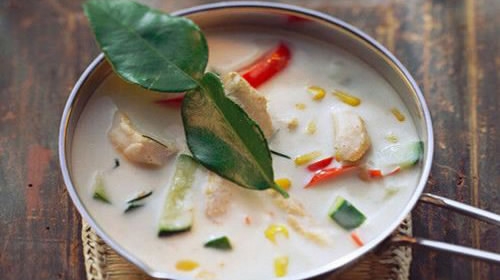
Did you know that Hainanese chicken rice is actually not a local dish from China’s island province of Hainan? Enjoyed by people in Southeast Asia and around the world, the beloved gourmet food is adopted from Wenchang chicken, one of the various delicacies available in the province. A tropical paradise and a treasury of natural resources, Hainan is heaven for gastronomers. To mark the upcoming Boao Forum for Asia, CGTN presents a list of Hainan gourmet dishes that will keep you full from dawn to dusk.
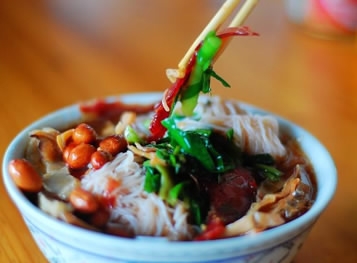
A bowl of rice noodles/Photo via Hainan Tourism Commission
A bowl of rice noodles/Photo via Hainan Tourism Commission
Hainan locals like to start their day with a bowl of rice noodles. Simmered with pork or beef bones, the long, thin noodles are often mixed with sour, spicy sauces and sprinkled with rich toppings like fried peanuts, green onions, coriander and dried seafood. To give it a little extra zing, locals sometimes add locally produced yellow lantern pepper sauce into the soup.
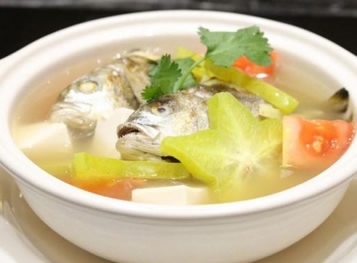
Yanglan sour fish soup/Photo via Hainan Tourism Commission
Yanglan sour fish soup/Photo via Hainan Tourism Commission
For lunch, having some savory Yanglan sour fish soup may help you survive the sizzling Hainan weather. Made with fish freshly caught from the sea, the soup features distinctive flavor as it is enhanced with leaves and fruits of the sour bean tree, sour star fruit and sour bamboo shoots. The appetizing dish is a local specialty of Fenghuang Town, formally known as Yanglan Town, home to Muslim Hui people who have popularized the recipe.
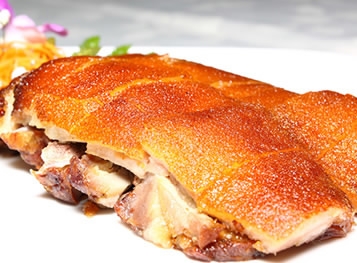
Roast suckling pig/Photo via Hainan Tourism Commission
Roast suckling pig/Photo via Hainan Tourism Commission
If you are feeling extra hungry, try roast suckling pig, the BBQ pork with golden, crispy skin and tender meat. The suckling pig is marinated for several hours in a savory sauce consisting of onions, garlic, ginger, and soy sauce, and then roasted slowly on a spit above a fire for four to five hours until it has reached perfection and is ready to be served.
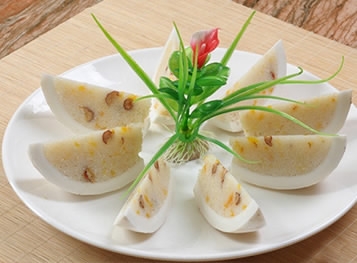
Coconut rice/Photo via Hainan Tourism Commission
Coconut rice/Photo via Hainan Tourism Commission
Coconut rice is a traditional specialty snack and is made by cooking sticky rice right inside a freshly picked coconut. Cut into slices, the sticky rice and the coconut meat are eaten together, making for a sweet tropical treat.
You cannot leave Hainan without tasting the renowned “four specialties” – Wenchang Chicken, Jiaji Duck, Dongshan Lamb and Hele Crab.
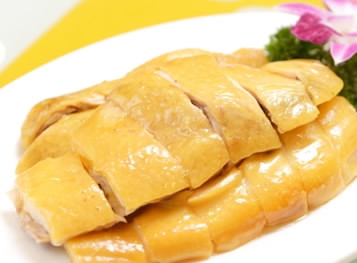
Wenchang chicken/Photo via Hainan Tourism Commission
Wenchang chicken/Photo via Hainan Tourism Commission
Among all four delicacies, Wenchang chicken may be the most well-known dish. Not only popular in Hainan, it has evolved to become the signature Hainanese chicken rice in Southeast Asia, thanks to the overseas Hainan population. Free range chickens are carefully chosen to cook the best Wenchang chicken dish, which is enjoyed by dipping meat pieces in a mixture of spices including chopped ginger, garlic, salt, soy sauce, vinegar, and freshly squeezed calamansi fruit.
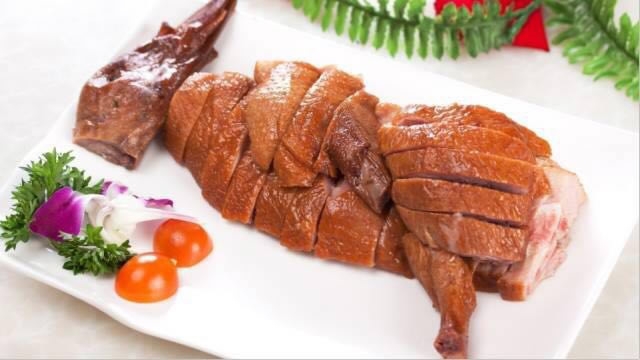
Jiaji duck/Photo via Hainan Tourism Commission
Jiaji duck/Photo via Hainan Tourism Commission
The best Jiaji duck is made using steamed or boiled duck fed with a blend of cereal, bean curd or seafood. It has thick meat, thin skin, soft bones and little fat. One of the most famous ways to serve duck is to steam and slice it, before serving with a salty-and-sour sauce.
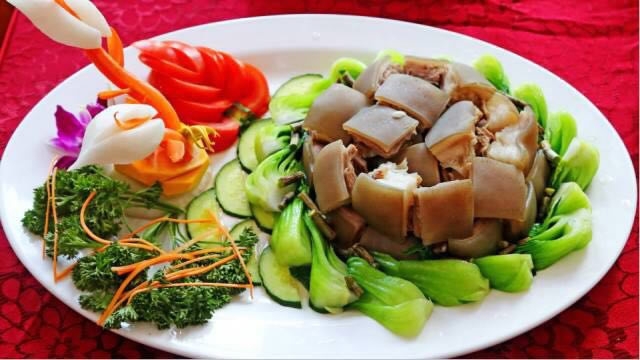
Dongshan lamb/Photo via Hainan Tourism Commission
Dongshan lamb/Photo via Hainan Tourism Commission
Dongshan lamb features tender meat and savory soup. The delicacy is mainly produced in Dongshan Mountain near Hainan’s Wanning City, where lambs are raised in the wild and fed with nutrient herbs.
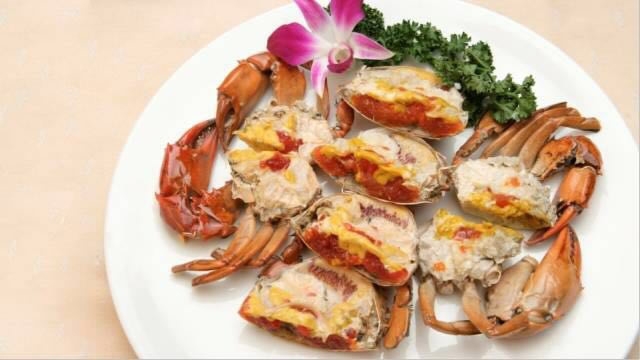
Hele crab/Photo via Hainan Tourism Commission
Hele crab/Photo via Hainan Tourism Commission
Hele crab is a local specialty of southeast Hainan’s township of Hele. The orange-red crab roe in Hele crabs has an oily texture and a strong aroma. Hele Crab tastes best when steamed and eaten with ginger and vinegar. It maintains the original flavor of the crab and tastes especially fresh and delicate. It is best eaten during autumn.

SITEMAP
Copyright © 2018 CGTN. Beijing ICP prepared NO.16065310-3
Copyright © 2018 CGTN. Beijing ICP prepared NO.16065310-3